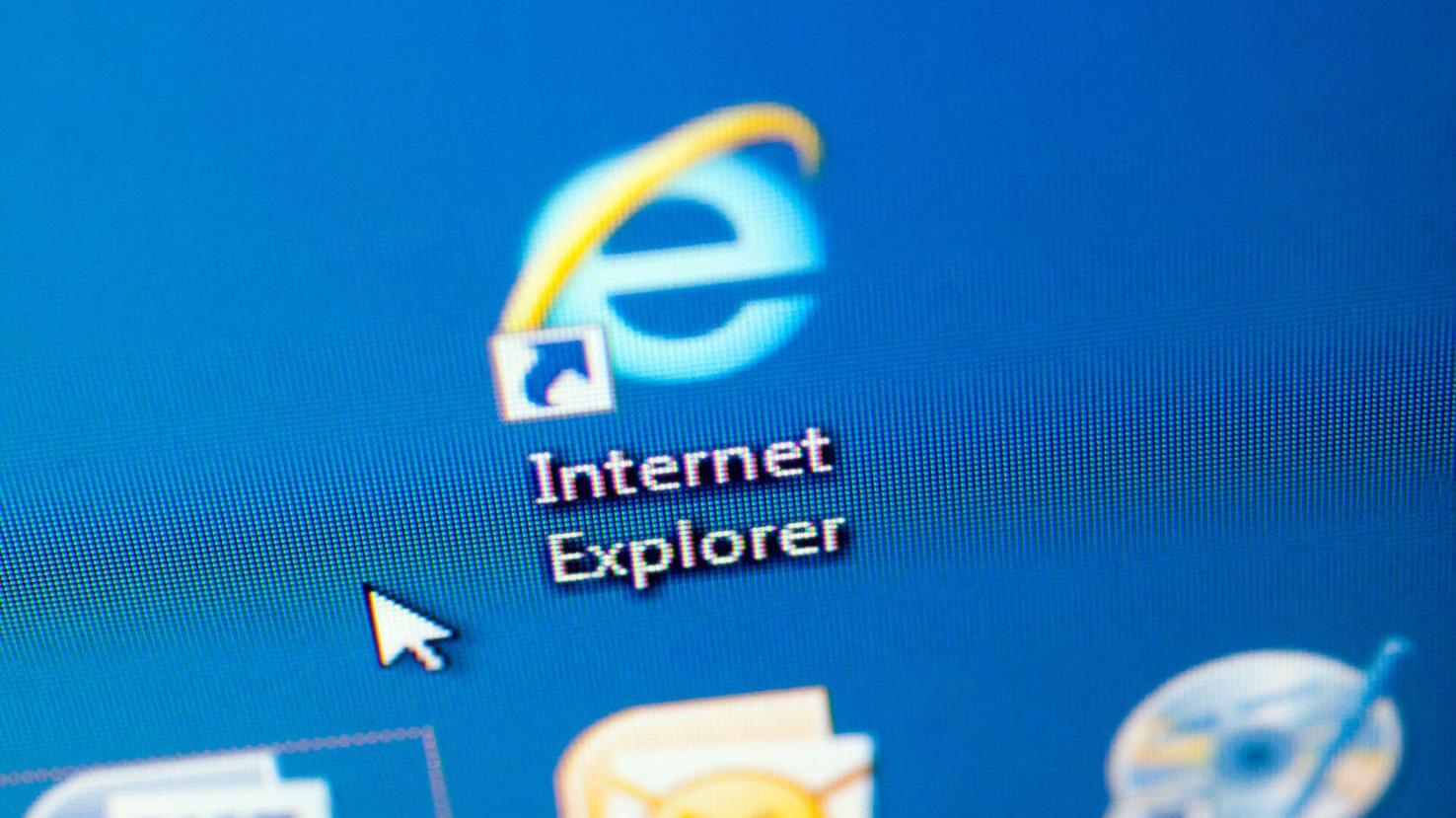Saying Goodbye: The End of Internet Explorer Era

Internet Explorer (IE), developed by Microsoft, has been one of the most popular web browsers since its release in 1995. For decades, it dominated the browser market, but its popularity has waned with the advent of faster, more secure, and feature-rich alternatives. This article explores the rise and fall of Internet Explorer, the reasons behind its decline, the impact of alternative web browsers, and what the future holds for web browsing.
The Rise and Fall of Internet Explorer

Internet Explorer enjoyed immense success in the late 1990s and early 2000s due to its bundling with the Windows operating system. As the default browser on Windows, it had a significant advantage over its competitors. Additionally, the Internet was still in its infancy during this period, and limited alternatives were available.
However, as the Internet evolved and users demanded more advanced features, Internet Explorer failed to keep up. Its slow speed, frequent security vulnerabilities, and lack of compatibility with modern web standards began to frustrate users, leading to a decline in its market share as users started seeking out better alternatives.
Reasons Behind the Decline of Internet Explorer
There are several reasons behind Internet Explorer’s decline. One of the main factors was its slow development cycle. Compared to its competitors, such as Mozilla Firefox and Google Chrome, Internet Explorer had long gaps between updates, resulting in a lack of new features and slow performance. This inability to innovate quickly caused users to migrate to more advanced browsers.
Furthermore, Internet Explorer faced significant security issues, which eroded its reputation. The browser became notorious for its susceptibility to malware and cyber-attacks. This compromised user privacy and left many feeling unsafe while browsing. The constant battle to patch vulnerabilities and address security flaws further contributed to its downfall.
Another crucial factor was Internet Explorer’s failure to adhere to web standards. As websites became more complex and relied on modern coding practices, Internet Explorer needed help to render them correctly. This caused compatibility issues and frustrated web developers who had to spend extra time and effort catering to Internet Explorer’s quirks. As a result, developers began favouring browsers that adhered to web standards more faithfully.
The Impact of Alternative Web Browsers

The decline of Internet Explorer paved the way for alternative web browsers to thrive. Mozilla Firefox, released in 2004, focused on speed, security, and adherence to web standards. It gained popularity among tech-savvy users who sought a better browsing experience. Shortly after, Google Chrome entered the scene, offering a minimalist design, fast performance, and seamless integration with Google services. Chrome quickly became the browser of choice for many, surpassing Internet Explorer’s market share.
These alternative browsers revolutionized web browsing by introducing features like tabbed browsing, extensions, and improved performance. They encouraged healthy competition, benefiting users by driving innovation and pushing the boundaries of what a browser could do. Internet Explorer’s market share continued to dwindle as users migrated to these alternatives.
Is Internet Explorer Near the End of Its Life?
Given the steady decline in market share and the lack of development updates, it is safe to say that Internet Explorer is nearing the end of its life. Microsoft has shifted its focus to its new browser, Microsoft Edge, which offers improved performance, better security, and support for modern web standards. Microsoft officially announced the retirement of Internet Explorer in 2019, urging users to transition to Edge.
Furthermore, many popular websites and web applications have already discontinued support for Internet Explorer, making it increasingly impractical to use. As more companies follow suit, Internet Explorer’s relevance will diminish. Users relying on legacy applications that require Internet Explorer may be forced to use alternative methods or seek virtualization solutions to maintain compatibility.
From 90% Market Share to Obsolescence
At its peak in the early 2000s, Internet Explorer dominated the web with a staggering 90% market share, becoming the default gateway to the internet for millions around the world. It was bundled with Windows, pre-installed on every PC, and for many users, it was the internet. But as the digital landscape evolved, Internet Explorer failed to keep up with modern standards, performance demands, and user expectations.
The rise of faster, more secure, and developer-friendly browsers like Google Chrome and Mozilla Firefox exposed IE’s sluggishness and lack of innovation. Over time, it became more of a meme than a mainstay a relic of the past struggling to stay relevant. Its decline wasn’t sudden, but inevitable. What was once the undisputed king of browsers slowly faded into obsolescence, marking the end of an era that helped shape the web as we know it.
A Boomer in a Gen Z World
Internet Explorer felt increasingly out of place in today’s fast-paced, tech-savvy digital age like a boomer trying to keep up with Gen Z trends. While newer browsers embraced sleek design, lightning speed, and cutting-edge features, IE clung to outdated technology and clunky performance. Gen Z users, raised on instant apps, real-time updates, and mobile-first design, found little use for a browser that lagged behind in both function and form. It wasn’t just old it felt old. In a world of TikTok, AI, and cloud computing, Internet Explorer was the digital equivalent of bringing a fax machine to a Zoom call. Its retirement wasn’t just expected it was long overdue.
End of Support: What It Means for Businesses
The official end of support for Internet Explorer signals a major shift for businesses that have long relied on it to run legacy web applications and internal systems. Without security updates, patches, or technical assistance, continuing to use IE now poses significant risks from data breaches to compliance violations. For IT departments, this is both a challenge and an opportunity: a challenge to quickly migrate critical systems, but also a chance to modernize infrastructure and adopt more secure, efficient browsers like Microsoft Edge or Chrome. While some organizations may face short-term disruption, the long-term benefits of leaving behind outdated technology far outweigh the drawbacks. It’s a wake-up call for businesses to future-proof their digital environments and embrace innovation over nostalgia.
IT Departments Rejoice – No More IE Fixes!
For IT professionals, the end of Internet Explorer feels like a long-awaited relief. For years, teams have wrestled with the browser’s quirks, patching endless compatibility issues, dealing with broken layouts, and maintaining outdated code just to keep legacy systems functioning. Supporting IE often meant double the work building modern solutions while accommodating a browser stuck in the past. Now, with official support finally ended, IT departments can breathe easier and shift their focus toward more secure, standards-compliant browsers. It’s the end of an era filled with frustration, and the beginning of a more streamlined, future-ready workplace.
Developers Celebrate: No More IE Compatibility Code
Web developers around the world are collectively cheering as Internet Explorer rides off into the sunset. For years, building websites meant writing extra lines of CSS hacks and JavaScript workarounds just to make things function in IE’s outdated rendering engine. It was a constant battle what worked perfectly in modern browsers often broke in IE for no good reason. Now, with its retirement, developers are free to embrace modern web standards without fear of breaking things for that one stubborn browser. It means cleaner code, faster development, and better performance for users. Saying goodbye to IE isn’t just symbolic it’s a genuine productivity boost for the people who build the web.
A Moment of Silence for Legacy Web Apps
As Internet Explorer reaches the end of its life, it also takes with it a generation of legacy web applications that were built specifically and sometimes exclusively for its unique quirks. These apps, often developed in the early 2000s, became deeply embedded in corporate and government systems, surviving long past their prime thanks to IE’s continued existence.
Now, without support, these aging tools face extinction unless modernized or rebuilt entirely. It’s a bittersweet moment: while progress demands we move on, there’s a certain nostalgia tied to these digital relics. For many organizations, this marks not just the end of a browser, but the end of a digital era built on custom solutions, ActiveX controls, and “works best in Internet Explorer” banners.
The Future of Web Browsing

The retirement of Internet Explorer marks a new era in web browsing. Users now have a plethora of options to choose from, each offering unique features and advantages. Browsers like Google Chrome, Mozilla Firefox, and Microsoft Edge dominate the market, constantly pushing the boundaries of speed, security, and user experience.
Moreover, the rise of mobile devices has led to the development of mobile-specific browsers, such as Safari on iOS and Chrome on Android. These browsers cater to the specific needs of mobile users, providing seamless integration with mobile operating systems and optimized browsing experiences.
As technology evolves, we can expect even more innovation in web browsing. Emerging technologies like virtual reality and augmented reality will likely shape the future of how we interact with the Internet. The possibilities are endless, and it is an exciting time for both users and developers.
What to Expect After Internet Explorer
With Internet Explorer’s retirement, users can expect a more streamlined and secure browsing experience. Modern browsers prioritize speed, privacy, and seamless integration with other devices and services. Advanced features like automatic updates, built-in password managers, and enhanced privacy controls are now standard offerings.
Additionally, developers can rejoice in no longer needing to spend excessive time and effort catering to Internet Explorer’s quirks. They can utilize the latest web technologies and create cutting-edge websites and web applications that provide a consistent experience across modern browsers.
Migrating from Internet Explorer to a New Browser
For users reliant on Internet Explorer, migrating to a new browser may seem daunting. However, the process is relatively straightforward. The first step is to choose a new browser that best suits your needs. Popular options include Google Chrome, Mozilla Firefox, and Microsoft Edge. Once you’ve made a selection, download and install the chosen browser.
Next, you’ll want to transfer your bookmarks, saved passwords, and other settings from Internet Explorer to the new browser. Most modern browsers provide an import feature allowing you to bring over your data seamlessly. Consult the documentation or support resources offered by your chosen browser for step-by-step instructions on importing your data.
Tips for a Smooth Transition
To ensure a smooth transition from Internet Explorer to a new browser, consider the following tips:
- Familiarize yourself with the new browser’s interface and features. Take some time to explore and customize the settings according to your preferences.
- Install any necessary browser extensions or add-ons that you regularly use.
- Export any bookmarks or saved passwords from Internet Explorer before migrating to the new browser. This ensures that you have a backup of your important data.
- Update any web applications or websites you rely on to ensure compatibility with your new browser.
- Take advantage of the new browser’s features, such as tab management, privacy controls, and password managers, to enhance your browsing experience.
What Does the End of Internet Explorer Mean for Users and Developers?

The retirement of Internet Explorer has significant implications for both users and developers. For users, it means embracing a more modern and secure browsing experience. They will have access to a broader range of browsers, each offering unique features and advantages. Users can expect faster performance, better security, and improved compatibility with modern web standards.
For developers, the end of Internet Explorer means they can focus on utilizing the latest web technologies and creating forward-thinking websites and web applications. They no longer need to spend time and effort catering to the quirks of an outdated browser. This positive shift encourages innovation and pushes the boundaries of what is possible on the web.
Frequently Asked Question
Why is Internet Explorer being discontinued?
Microsoft officially ended support for Internet Explorer to promote a more modern, secure, and efficient browsing experience. IE struggled to keep up with evolving web standards, performance demands, and security protocols. The company now encourages users to switch to Microsoft Edge, which is faster, safer, and compatible with modern web apps.
When did Internet Explorer support officially end?
Internet Explorer 11, the last version of the browser, reached its official end of support on June 15, 2022 for most versions of Windows 10. Some enterprise environments had limited extended support, but as of 2023-2024, Microsoft has fully phased it out.
What happens if I still use Internet Explorer?
Continuing to use IE puts you at serious risk. Without security updates or technical support, users are vulnerable to cyberattacks, malware, and compatibility issues. Many websites and web apps already no longer support IE, resulting in broken layouts and limited functionality.
What should businesses do about legacy apps that depend on IE?
Microsoft recommends using the Internet Explorer Mode in Microsoft Edge, which allows businesses to run legacy web apps within Edge while maintaining modern browser security and support. Long-term, companies should plan to modernize or rebuild old systems to align with current web standards.
Is Microsoft Edge the replacement for Internet Explorer?
Yes, Microsoft Edge is the official successor to Internet Explorer. Built on the Chromium engine (like Google Chrome), it offers faster performance, enhanced security, and broader compatibility with modern websites, while also supporting legacy apps through IE Mode.
More Related Post: Unveiling the Final Chapter: The End of an Internet Era
Conclusion
The retirement of Internet Explorer marks the end of an era. While it was once the dominant browser, its decline in popularity and relevance has paved the way for more advanced alternatives. Users now have many options, each offering a superior browsing experience.
As we bid farewell to Internet Explorer, it is essential to embrace change and adapt to the evolving landscape of web browsing. Whether it’s Google Chrome, Mozilla Firefox, or Microsoft Edge, the future of web browsing is bright. With faster performance, better security, and innovative features, these browsers empower users and developers alike to explore the boundless possibilities of the Internet. Embrace the change and embark on a new era of web browsing.






